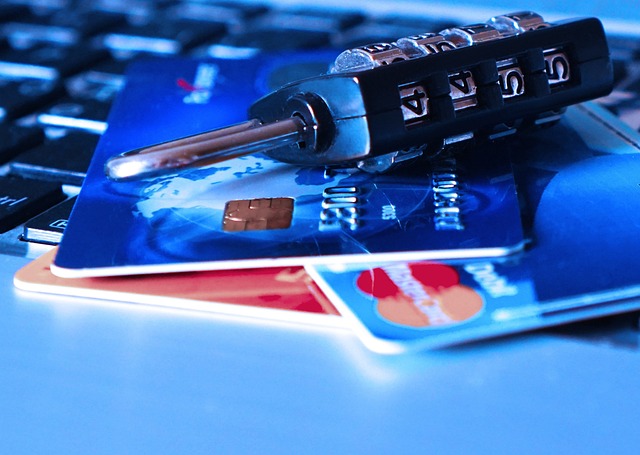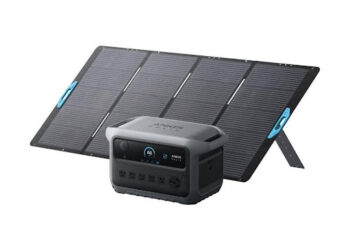Being responsible with money is one of the pillars of good financial ‘health.’ Responsible spending, emergency funds, and smart use of money will steer you clear of debts and trouble. Still, no matter how carefully you plan your budget and take care of your finances, unplanned expenses can pop up at least once every few months.
For example, imagine if your washing machine suddenly breaks down or your AC system starts to bug in the middle of summer. In most cases, repairs probably have no purpose. So the solution is to buy new devices, which are quite expensive.
Or, maybe you’ve stumbled upon an amazing deal on a trip you’ve always dreamed of, but you’re short on cash. These are situations where credit cards can be of great help. These financial tools can be your best friends and your worst enemies if you use them irresponsibly.
You can check the following link for more tips on responsible card usage:
https://www.nerdwallet.com/article/credit-cards/credit-card-tips-everyone-should-know
Plastic money is an excellent option for responsible consumers with sound budgeting habits. They can make a large purchase, pay for sudden costs, and then pay off the purchase later. That’s just one of the many benefits of this financial tool.
Convenience
Credit cards can be a great way to pay for unexpected expenses and make large purchases. You can do that with a single piece of plastic, without calculations, counting money, etc. You’ll think about that later, as you can use this piece of plastic as many times as you want during the billing cycle.
These financial tools come in handy for travelers, those who like to use cash as little as possible, and people who prefer online shopping. There’s no need to carry all your money with you – your credit card will serve the purpose.
While the convenience of using plastic money makes spending money easier, it can also lead to overspending. In order to avoid this problem, use your card only for purchases you’d normally make with cash. And make sure that you pay off your debts in time; otherwise, you’ll be charged interest, and your credit score can drop.
Safety
When it comes to safety, credit cards are more secure than cash and debit cards. For example, if you lose or someone steals your cash, it’s mostly irreversible. If that happens with the credit card, one phone call is enough to block the account and protect the funds on it.
Plastic money comes with protection against fraudulent activity. But debit cards are more prone to scams and theft. Scammers can hack it and take all your money in no time. The protection that credit cards provide can help you avoid these risks.
You also have to be careful when using plastic money. Always remember to sign the back of your card when you receive it and protect your information. Also, use your cards as the payment method only on trustworthy websites and e-commerce platforms. And don’t forget to turn off the Autofill feature.
Signing up for alerts is essential to ensure your account is secure. Using this option, your financial institutions can contact you if there’s a suspicious transaction. Also, you’ll want to regularly check your receipts to make sure they match your account.
Ease of Application
You can apply for a kredittkort i Norge online, over the phone, or at your local branch. The issuer will request certain information about you, including your social security number, individual taxpayer identification number (ITIN), and income level. Sometimes, they might also ask for other information, such as your spouse or partner’s income and assets.
The gathered information will help the card issuer determine if you are eligible to receive a credit line. So before you apply for this type of consumer loan, you should know your abilities. Take some time to review your report for any errors. That’s your right as a consumer, and you are entitled to one free report each year.
Once you’ve checked your report, compare various options and determine whether you’ll carry your balance month-to-month or pay it off in full. Then, you can choose a credit card that will work with your current situation. Many card issuers will allow you to apply online and receive a decision in as little as a few hours.
Bonuses and Cashback
Using a credit card for bonuses and cashback can be very beneficial. You earn rewards for using your card. These can be bonus points, discounts, and even money back on your account. The reward program usually depends on the issuer and your spending.
Many cards feature rotating bonus categories, such as dining, entertainment, gas stations, etc. These change every quarter, but they require a certain amount of spending to be eligible. So changing the way you spend can help you earn points faster. The only catch is to sign up for this perk before you can redeem the bonus.
Depending on your issuer, rotating cashback can offer more cashback on small purchases. Most companies let you use your rewards to pay off past purchases. But some companies give you options, such as donating your earned money to a charity.
Building Credit History
Credit cards can be an excellent tool for building your credit history as a regular consumer and payer. Lenders use this parameter to determine your creditworthiness. It helps them decide how much credit you should be approved for and under what terms. You’ll be eligible for more favorable loan terms if your history is good, with no gaps.
In order to make that happen, you must make your card payments on time. These can be minimum payments to avoid late fees and losing promotional interest rates. In any case, your issuer sends regular reports about your payment activities to credit bureaus.
Settling your card balance every month will keep your finances sound. On the other hand, missing a payment will hurt your credit score and stay on your report for years. Setting up automatic payments to make the minimum payment and the rest of the balance is an effective way to avoid missing a payment.
More tricks to building a good credit history are not opening new credit lines and keeping your utilization rate low. Credit utilization represents how much of your available limit is used, so keeping it below 30% is the best strategy. That means doing only planned purchases and avoid using your cards for things listed on this link.
Track Your Spendings
Credit cards allow you to track your spending habits by categorizing every transaction. Depending on the issuer, you can even set budgets for each category. That makes tracking easier and saves time. Besides, you can determine whether your purchases are consistent with your goals.
For example, you could set a monthly budget of $1,500 and allocate certain amounts to each category. You could also set weekly budgets for your groceries, clothes, and eating out. That will help you keep an eye on overspending and stay out of debt.
Credit cards have their benefits, but they won’t work for everyone. Responsible consumers will use these tools to build good credit and solve financial issues. Yet, people who find it challenging to manage their finances should avoid plastic money.






